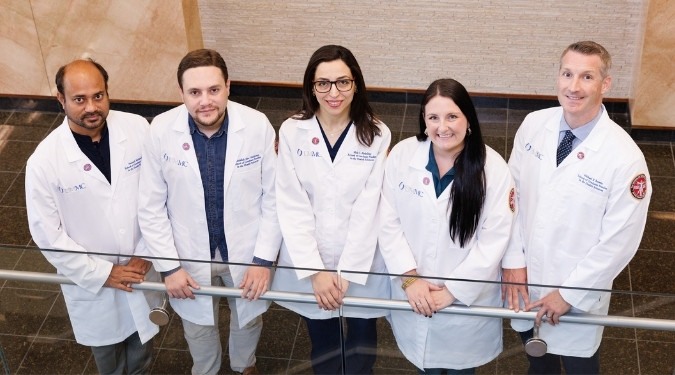 The graduate program in Clinical Anatomy is a unique doctoral program focusing on three tenets of anatomical education: Anatomical Content Knowledge, Educational Knowledge, and Education Research Knowledge. The interaction of these tenets is critical to successful teaching in the anatomical sciences in the future, as health sciences education begins a rapid evolution to produce the next generation of health care providers and educators.
The graduate program in Clinical Anatomy is a unique doctoral program focusing on three tenets of anatomical education: Anatomical Content Knowledge, Educational Knowledge, and Education Research Knowledge. The interaction of these tenets is critical to successful teaching in the anatomical sciences in the future, as health sciences education begins a rapid evolution to produce the next generation of health care providers and educators.
The over-arching goal of this program is to produce doctoral graduates who are proficient in each tenet and in the interaction of the tenets that would train them for professional careers as master educators in the anatomical sciences for the benefit of training future health care professionals.
Students entering our program will learn the anatomical disciplines of Human Gross Anatomy, Histology (microanatomy), Neuroanatomy and Embryology, and will be trained in modern educational theories and practices. Students will also work with other faculty members on educational research projects as they learn the skills necessary to conduct independent research. Doctoral students who successfully pass their qualifying examinations will do a dissertation project either in the teaching and learning of anatomy, which may include the development of new methods, or in the clinical applications of anatomy.
Upon graduation from the PhD program, students will be prepared to teach anatomy in a variety of post-secondary environments including community colleges, undergraduate institutions and secondary schools as well as positions at the post-graduate level and to do research in clinical anatomy or the teaching of anatomy.
For more information, email our program director.
Related information


